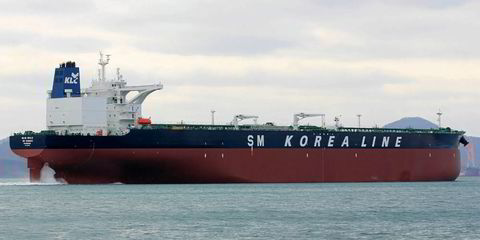Marine insurers are ready to support shipowner clients following last week’s agreement on the resumption of Ukraine grain shipments — but only once a safe passage for bulker carriers has been arranged.
Underwriters and brokers in the London market contracted by TradeWinds said there have been ongoing discussions with owners about the availability of cover since talk of an agreement first broke.
The UK government has also been encouraging the London market to step in once the trade resumes, and recently said it had assurances that cover would be made available.
The UK also pledged to help demine the Black Sea using remote technology.
Mutual protection and indemnity cover should not be a problem as it is a one-year contract and — in relation to the ongoing Ukraine trades — cover will only be removed if there is a breach of sanctions.
It is mainly war risk, hull and machinery and cargo underwriters which have a decision to make on whether to provide cover.
The general view is that the commercial insurance market has responded positively to discussions with owners so far.
However, the final decision and the pricing will depend on the eventual security provisions put in place in the Black Sea to guarantee the safety of the trade.
“We believe it may take a few weeks to months to resolve insurance and safety concerns for the Black Sea routes from major grain ports, including Odesa,” said Daejin Lee, lead shipping analyst at S&P Global Market Intelligence.
The London market’s concerns over safe passage will have deepened following Russian missile attacks on Odesa over the weekend.
Balance sheets
Brokers also suggested willingness of insurers to respond to the grain trade will be affected by the impact the conflict is having on their balance sheets.
An insight into the view of insurers to the Ukraine market was given by insurer Beazley in its recent 2022 six-month earnings report.
It said it expected marine, aviation, political violence and trade credit to be a significant source of claims related to the Ukraine conflict. It estimated its total exposure to be in the region of $50m.
Beazley said that the marine, aviation and political risk cover had already been impacted by the war and contributed to a pre-tax loss in the sector of $17.3m in the six-month period, compared to a $55.6m profit in the same period last year.
However, it said it would continue to provide cover in the region. “Our focus has been on supporting our clients with exposures in the region to work through this significant shift in geopolitics,” Beazley said.
One factor which would help ease pressure on underwriters is that the Ukrainian grain agreement also paves the way for the release of more than 40 foreign-flag vessels at Ukraine ports which have been caught up in the conflict.
Insurers are looking at payouts of up to $900m in total on the tonnage if the ships remained stuck in the ports for more than one year.






